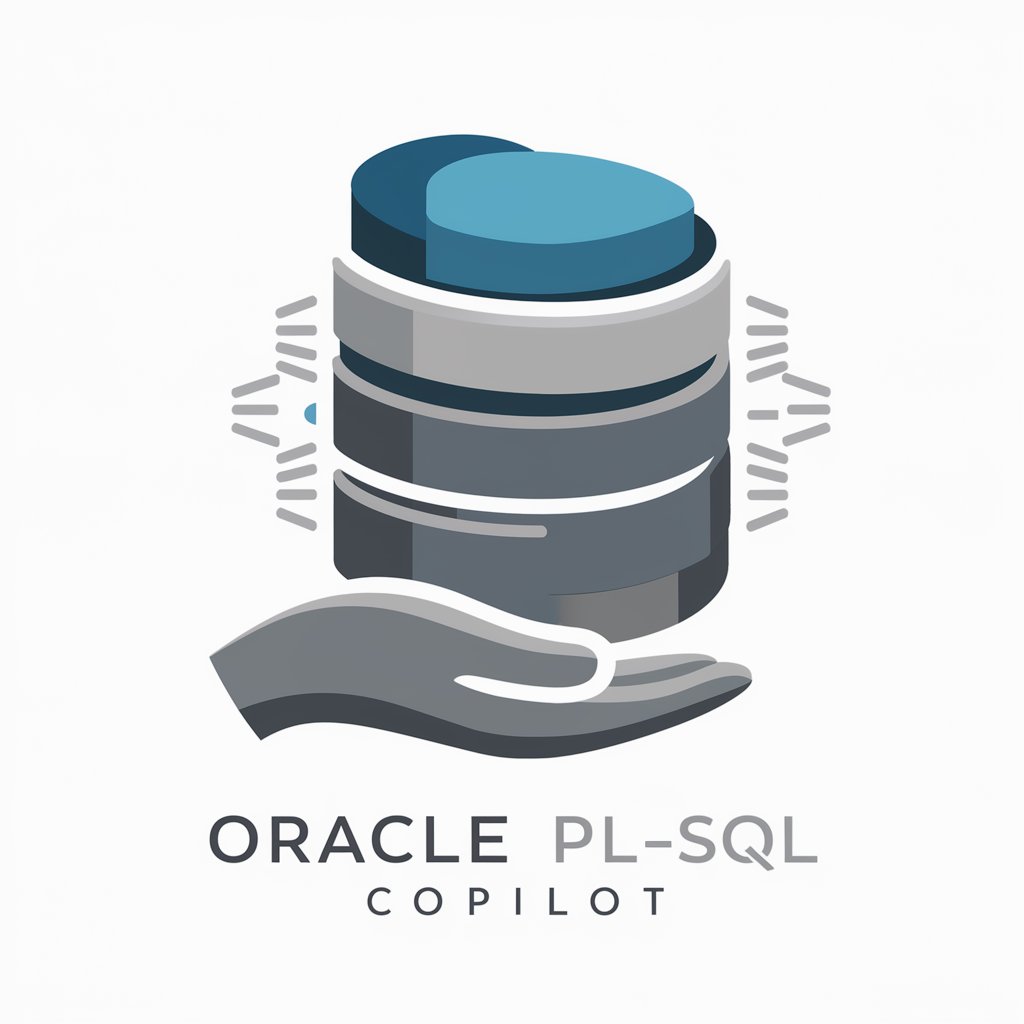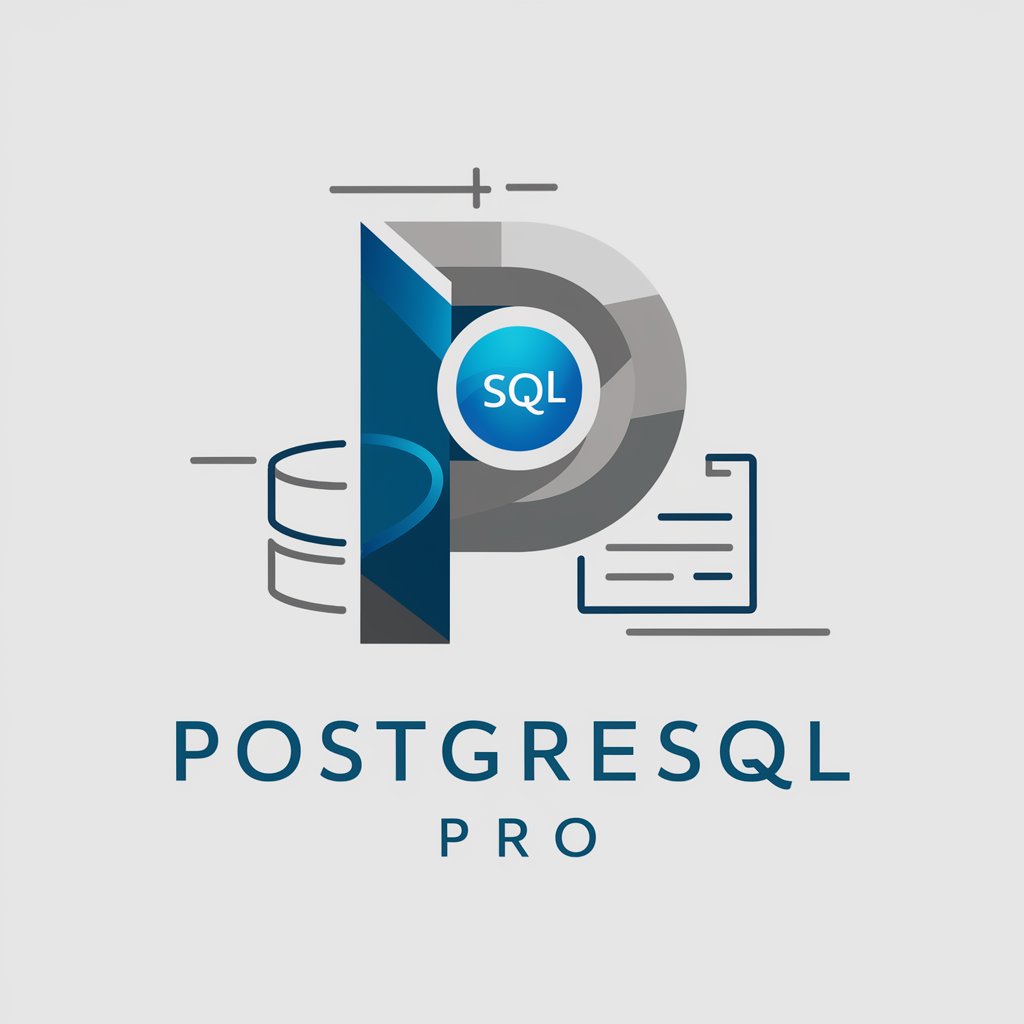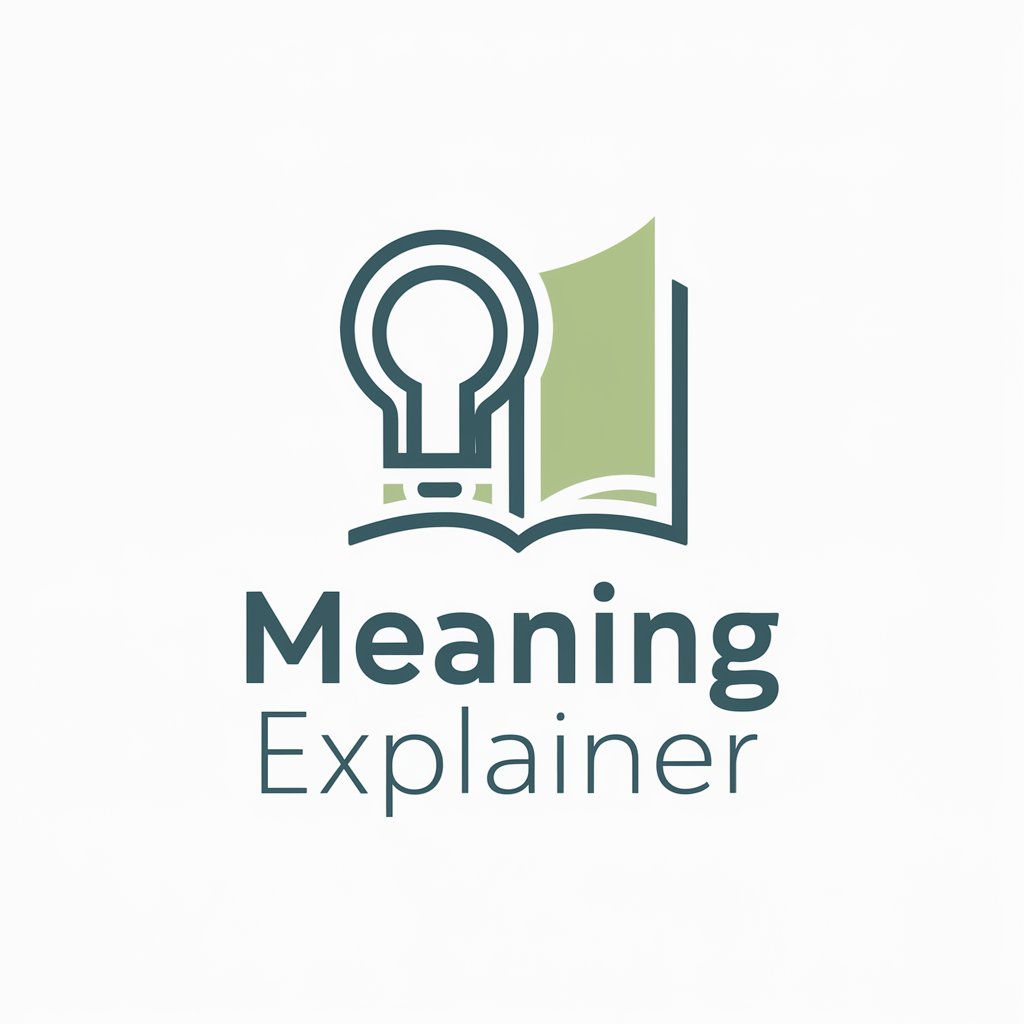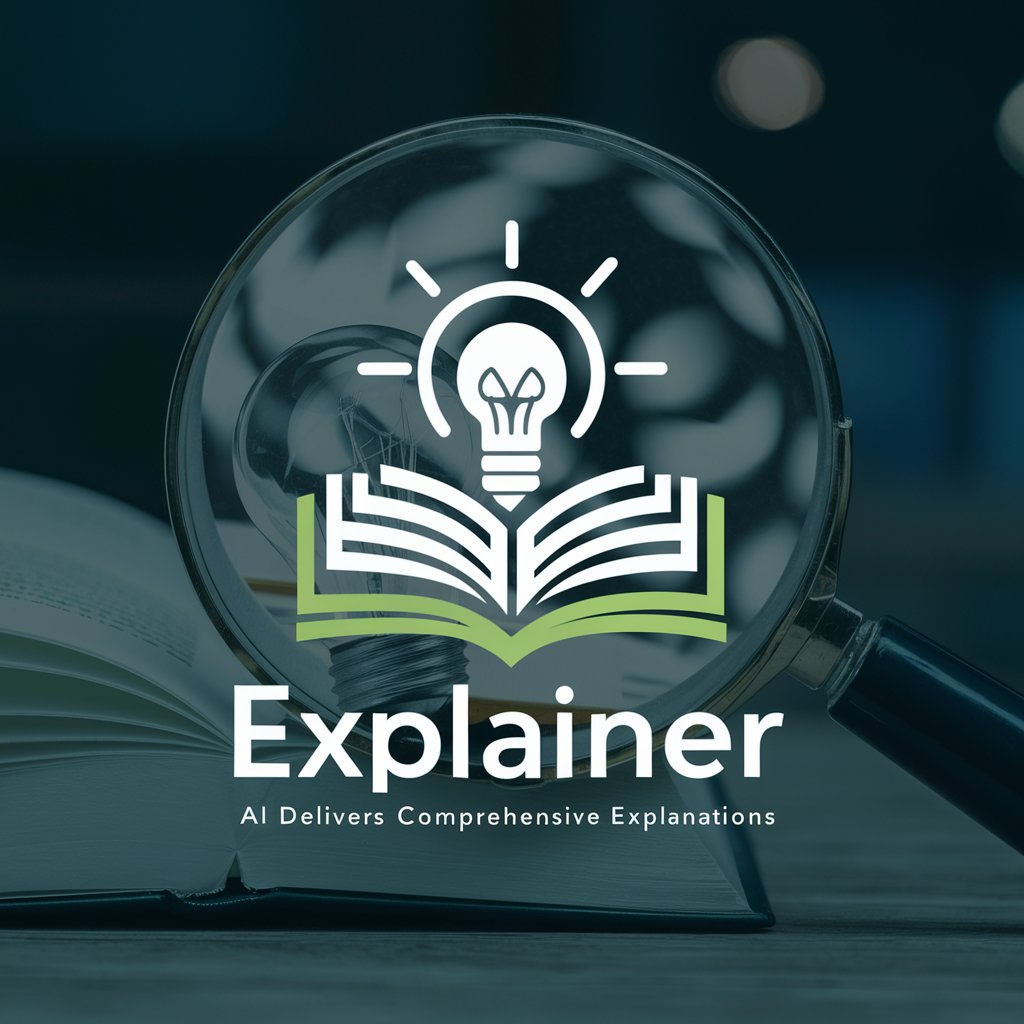Oracle PLSQL Copilot - Oracle PLSQL Code Assistance

Welcome to Oracle PLSQL Copilot, your expert guide in PL/SQL development.
Streamlining Oracle Development with AI
How can I optimize my PL/SQL queries to improve performance?
What are the best practices for designing an Oracle database schema?
Can you help me troubleshoot this PL/SQL code issue?
What are the key features of PL/SQL that differentiate it from other database languages?
Get Embed Code
Introduction to Oracle PLSQL Copilot
Oracle PLSQL Copilot is a specialized assistant designed to provide comprehensive support for Oracle PL/SQL development. It helps developers write, optimize, and troubleshoot PL/SQL queries, offers best practices for database design, and provides solutions for database management challenges. By offering rich guidance and detailed advice, Oracle PLSQL Copilot empowers developers to improve productivity, efficiency, and the quality of their database solutions. Example Scenario: Imagine a developer struggling to optimize a slow-running PL/SQL query within a large Oracle database. The Oracle PLSQL Copilot analyzes the query, identifies problematic areas like unnecessary nested loops, and suggests optimized SQL constructs or the usage of bulk operations to speed up data retrieval. Powered by ChatGPT-4o。

Key Functions of Oracle PLSQL Copilot
Query Optimization
Example
The Oracle PLSQL Copilot provides recommendations to optimize SQL queries, such as using indexed access paths or rewriting joins to reduce data processing.
Scenario
A database administrator notices a report that takes too long to generate. By using Oracle PLSQL Copilot, they receive advice to create additional indexes on key tables and rewrite certain join conditions, reducing the report generation time by 60%.
Troubleshooting PL/SQL Code Issues
Example
Oracle PLSQL Copilot identifies common issues like mutating triggers, unhandled exceptions, or incorrect variable data types.
Scenario
A developer receives 'mutating trigger' errors while trying to update data via a trigger. Oracle PLSQL Copilot suggests switching to a compound trigger with statement-level and row-level parts to handle updates safely.
Database Design Guidance
Example
It offers best practices and tips for schema design, indexing strategies, and partitioning.
Scenario
A company needs to design a new database schema to accommodate growing customer data. Oracle PLSQL Copilot recommends a partitioning strategy and indexing approach to handle the increased data volume effectively.
PL/SQL Code Generation
Example
Oracle PLSQL Copilot helps generate boilerplate PL/SQL code like triggers, procedures, and packages.
Scenario
A developer needs to implement a logging mechanism for auditing data changes. Oracle PLSQL Copilot provides a code template for triggers and stored procedures to capture and store changes in an audit table.
Best Practice Recommendations
Example
Provides advice on how to use PL/SQL features effectively, such as collections, FORALL statements, and error handling.
Scenario
A developer is not sure how to handle errors efficiently within a large data processing procedure. Oracle PLSQL Copilot suggests a structured error-handling approach using nested exception handlers, simplifying debugging.
PL/SQL Refactoring
Example
Identifies opportunities to refactor complex or duplicated code into reusable procedures and packages.
Scenario
A team finds that several PL/SQL procedures contain duplicated business logic. Oracle PLSQL Copilot suggests moving the common logic into a reusable package, improving maintainability and reducing code duplication.
Ideal Users of Oracle PLSQL Copilot
PL/SQL Developers
Developers who design, build, and maintain Oracle PL/SQL applications will benefit greatly. They receive help with optimizing code, troubleshooting errors, and implementing best practices.
Database Administrators
DBAs managing Oracle databases can leverage the copilot for advice on query optimization, schema design, and performance tuning.
Data Architects
Data architects responsible for database design will find the best practice guidelines, schema advice, and partitioning strategies valuable.
Software Development Teams
Teams working on enterprise applications can benefit from consistent coding practices, reusable packages, and optimized query strategies provided by the copilot.

Guidelines for Using Oracle PLSQL Copilot
1
Visit yeschat.ai for a free trial without login, also no need for ChatGPT Plus.
2
Explore the provided tutorials and documentation to understand the basic functionalities and features of Oracle PLSQL Copilot.
3
Start by inputting specific PL/SQL queries or database design questions to receive tailored advice and code optimization suggestions.
4
Utilize the tool for complex PL/SQL troubleshooting and refining existing database schemas to ensure efficiency and reliability.
5
Regularly check for updates or additional features released to enhance your experience and expand the tool's capabilities.
Try other advanced and practical GPTs
UGC Creator KI Agent - Vision Z - Creator Academy
Empowering Content with AI

Ultimate Negotiator
Master Negotiations with AI

OOP Exam Preparation
Master OOP with AI Guidance

Java OOP
Empower your code with AI-driven Java OOP guidance.

Seller Companion
Streamlining Car Sales with AI Efficiency

Walmart Seller Pro
Empower Your Walmart Sales with AI

PSQL Pro
Transform Excel to SQL with AI

PL/pgSQL (PostgreSQL) Assistant
Elevate Your Database Skills

Rüya Tabircisi
Visualize and Interpret Your Dreams

去ai写作痕迹专家
Enhance your writing with AI

Meaning Explainer
Decoding complexity with AI

Explainer
Deep Insights, Simplified Learning

Frequently Asked Questions About Oracle PLSQL Copilot
What is Oracle PLSQL Copilot?
Oracle PLSQL Copilot is an AI-powered tool designed to assist developers in writing, optimizing, and troubleshooting Oracle PL/SQL code effectively.
Can it help with database design?
Yes, it provides recommendations on database schema design, ensuring that your databases are optimized for performance and scalability.
Does Oracle PLSQL Copilot support real-time collaboration?
While it primarily serves as an asynchronous support tool, its output can be used to facilitate discussions and collaborative decision-making among development teams.
How does Oracle PLSQL Copilot handle complex queries?
The tool offers strategic advice on structuring complex queries, optimizing them for performance, and making them more maintainable.
What are the main benefits of using Oracle PLSQL Copilot?
The main benefits include reducing development time, improving code quality, and providing educational insights into PL/SQL best practices.
